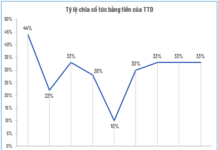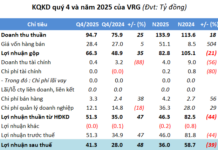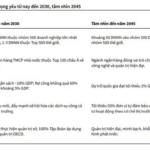
The Ministry of Industry and Trade has released a comprehensive report summarizing, addressing, and incorporating feedback from various agencies and units regarding the draft Circular on the implementation of electricity pricing.
The Ministry solicited written opinions from 23 agencies and units within and outside the Ministry, entities affected by the draft; People’s Committees and Departments of Industry and Trade of all provinces and centrally-administered cities (requesting that provincial and municipal Departments of Industry and Trade gather input from local electricity retailers); and 2 experts and scientists.
As of September 22, 2025, the Ministry received 42 feedback submissions, including 5 unanimous approvals and 37 detailed comments.
In the second draft of the Circular on Electricity Pricing Implementation, the Ministry proposed two pricing schemes for electric vehicle (EV) charging.
Scheme 1 (General Provision): Retail electricity pricing for EV charging applies to buyers using electricity for charging stations/points serving transportation vehicles (including electric buses), requiring separate metering, except for residential households with charging points.
For residential EV charging under existing household electricity contracts, the entire measured consumption will be billed at residential rates.
Scheme 2 (Detailed Provision for Two Cases: Separate and Shared Metering): EV charging includes stations/points serving electric transportation vehicles (including buses), requiring separate metering.
If a customer has a residential electricity contract but uses it for EV charging, the entire measured consumption will be billed at residential rates as per current regulations.
For non-residential electricity usage, retail pricing applies based on specific usage purposes if separate metering is installed. Without separate metering for EV charging, pricing follows the purpose specified in the electricity purchase agreement.
In its feedback, V-Green Global Charging Station Development JSC proposed adopting Scheme 1 with the following amendments:
Scheme 1: “Retail electricity pricing for EV charging (charging service provision) applies to buyers using electricity for charging stations/points and battery swapping stations serving electric transportation vehicles (including buses), requiring separate metering.
For residential or individual EV charging/battery swapping (charging service provision) under existing household electricity contracts, power companies are responsible for installing auxiliary meters upon request to measure EV charging consumption separately, applying state-regulated retail EV charging rates for that portion.
Scheme 1 was selected by 10 entities/individuals, Scheme 2 by 13, and 20 did not choose either. Thus, Scheme 2—not mandating separate metering for EV charging—was more popular and will be further proposed in the draft Circular. The Ministry accepted the suggestion to include “battery swapping stations” in the draft.
Additionally, V-Green proposed eliminating peak-hour pricing for EV charging, as electricity rates are divided into peak (5 hours/day), off-peak (6 hours/day), and regular (13 hours/day). Peak-hour pricing would limit EV charging to 5 hours daily.
The company argued that charging stations require significant investment, and removing peak-hour pricing would encourage businesses and individuals to invest in charging infrastructure by extending operational hours.
The Ministry of Industry and Trade recommended retaining the draft Circular’s provisions on peak, off-peak, and regular pricing for EV charging, as outlined in Decision No. 14/2025/QĐ-TTg.
Is Two-Tier Electricity Pricing Cost-Effective?
Implementing a two-part electricity pricing structure ensures accurate and comprehensive cost calculations, effectively eliminating cross-subsidies. However, it does not guarantee lower overall expenses.
The Power of Electric: Unveiling Two Revolutionary Retail Electricity Plans for Electric Vehicle Charging
The Ministry of Industry and Trade has proposed two options for electricity retail prices for electric vehicle charging. In a move to encourage the adoption of electric vehicles, the proposal suggests that cafes and other businesses offering electric vehicle charging stations may need to install separate electricity meters.




















